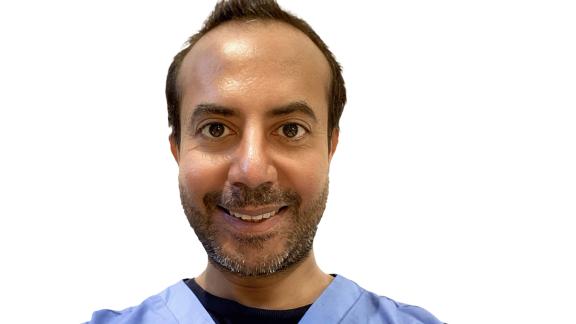Primary care tackling winter pressures through collaboration

Merton Health is putting partnership working in place to deliver a robust health service for its population this winter and beyond.
“This winter will be a winter like no other,” is a frequent comment from across the NHS and media right now. A global pandemic, a tired workforce, significant backlogs of care, unfair media scrutiny of general practice and a flu season. Did I forget to say we are transitioning to integrated care systems as well? I could go on…what I will say is that in the midst of all this, I feel tremendously proud to be a GP and a PCN clinical director.
Primary care networks (PCNs) have delivered a hugely successful vaccination programme that will protect millions of people this winter from COVID-19. General practice is delivering more appointments through more access routes than ever before. We’re doing great.
Where I work in Merton, there has never been a greater sense of togetherness across practices, PCNs, extended primary care and wider system partners. Our approach to winter planning epitomises this. Our PCNs operate as a pan-PCN partnership called Merton Health.
Our primary care winter plan is based on the subsidiarity principle that if practices cannot deliver, we deliver it through Merton Health providing a mechanism for working at scale. Through this we can partner with other providers like community services, community pharmacy and local hospitals.
Delivering in place
Our practices will be directly providing additional appointment capacity this winter. The new PCN ARRS roles have become a key part of this as well. Our PCN paramedic is brilliant and truly beloved by our vulnerable housebound population.
We will also have additional overflow capacity in PCN-based extended access hubs staffed by Merton Health’s flexible workforce bank avoiding placing any additional strain on practice staff. This is a seven-day service with dedicated estate for seeing patients with suspected or confirmed COVID-19 infection. Some practices really struggle with this due to estates limitations which is where a PCN or pan-PCN oriented approach can lend resilience and allow more patients to be seen and managed closer to home. Our hubs will also be seeing paediatric and respiratory patients. Alongside this, the community pharmacy consultation service is going live as well providing more access to patients for which I am truly grateful to our community pharmacy colleagues for.
Nationally, significant bed shortages are predicted this winter. Therefore, out-of-hospital care, with integrated teams supporting patients in their own home, will be a critical success factor as part of our winter plan.
Partnership working
Through Merton Health we have also partnered with community services, social care and secondary care to deliver a virtual ward model to support more acutely unwell patients in their own home, releasing inpatient beds. These working arrangements would not be possible were it not for the great local relationships we have and the can-do attitude we are seeing at every level from teams on the ground up to the senior leaders in the provider and CCG landscape.
This really demonstrates how primary care can influence and deliver at every level within an ICS
Merton Health is also part of an ICS-level federation provider alliance. The alliance has partnered with out-of-hours urgent care providers to provide additional capacity in the 111 service and enhanced practice call-handling capacity linked to directly bookable face-to-face appointments in extended access hubs across South West London.
This really demonstrates how primary care can influence and deliver at every level within an ICS:
- GP practices and community pharmacy providing additional face-to-face appointments for patients.
- Primary care networks delivering extended access and, in some parts of the country, the continued delivery of the COVID-19 vaccination programme. (Those of you who have continued – I think you’re amazing).
- Pan-PCN partnerships/GP federations working with system partners to deliver timely holistic out-of-hospital care relieving system pressures and protecting hospital beds.
- ICS-level GP federation collaboratives supporting urgent care and 111 as the front door to the NHS.
Primary care through GP practices, extended primary care, PCNs and GP federations has so much to be proud of and has the potential to make a real impact this winter and beyond. I hope integrated care systems across the country understand this and really support primary care to flourish. It’s not just about investment, it’s about building the right relationships and helping others to come to an understanding of what primary care has to offer and most importantly, the untapped potential of primary care networks as the cornerstone of any high-functioning integrated system.
Dr Sayanthan Ganesaratnam is East Merton PCN clinical director and London representative on the NHS Confederation’s PCN Network board



